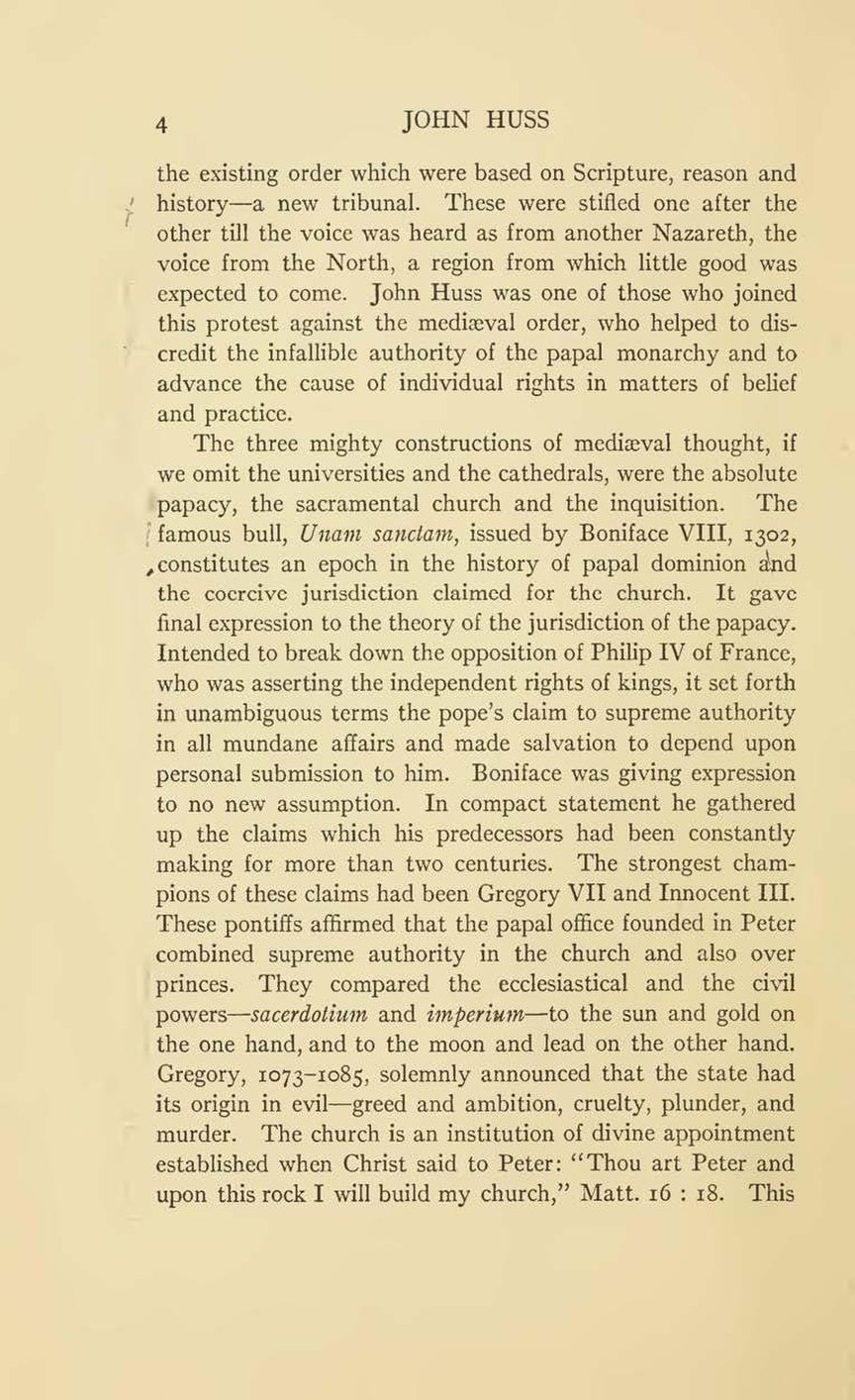the existing order which were based on Scripture, reason and history—a new tribunal. These were stifled one after the other till the voice was heard as from another Nazareth, the voice from the North, a region from which little good was expected to come. John Huss was one of those who joined this protest against the mediæval order, who helped to discredit the infallible authority of the papal monarchy and to advance the cause of individual rights in matters of belief and practice.
The three mighty constructions of medieval thought, if we omit the universities and the cathedrals, were the absolute papacy, the sacramental church and the inquisition. The famous bull, Unam sanctam, issued by Boniface VIII, 1302, constitutes an epoch in the history of papal dominion and the coercive jurisdiction claimed for the church. It gave final expression to the theory of the jurisdiction of the papacy. Intended to break down the opposition of Philip IV of France, who was asserting the independent rights of kings, it set forth in unambiguous terms the pope’s claim to supreme authority in all mundane affairs and made salvation to depend upon personal submission to him. Boniface was giving expression to no new assumption. In compact statement he gathered up the claims which his predecessors had been constantly making for more than two centuries. The strongest champions of these claims had been Gregory VII and Innocent III. These pontiffs affirmed that the papal office founded in Peter combined supreme authority in the church and also over princes. They compared the ecclesiastical and the civil powers—sacerdolium and imperium—to the sun and gold on the one hand, and to the moon and lead on the other hand. Gregory, 1073–1085, solemnly announced that the state had its origin in evil—greed and ambition, cruelty, plunder, and murder. The church is an institution of divine appointment established when Christ said to Peter: “Thou art Peter and upon this rock I will build my church,” Matt. 16: 18. This
